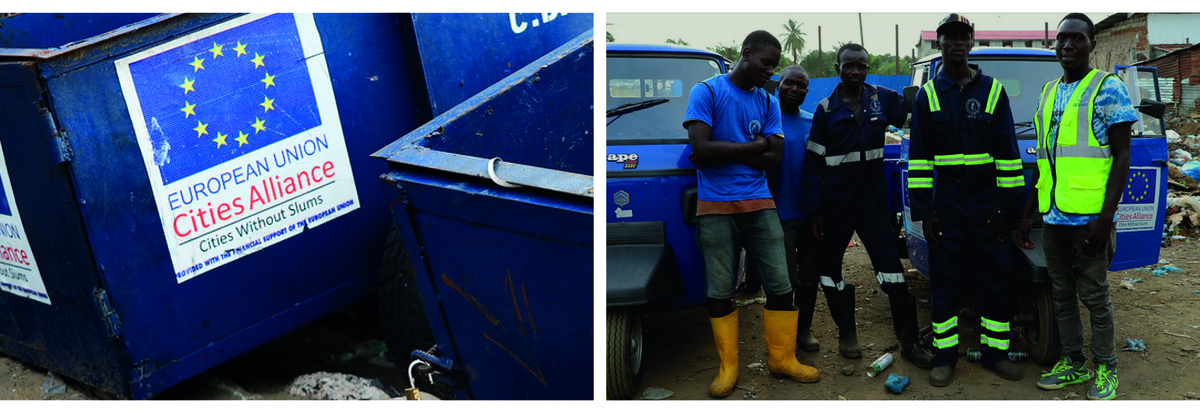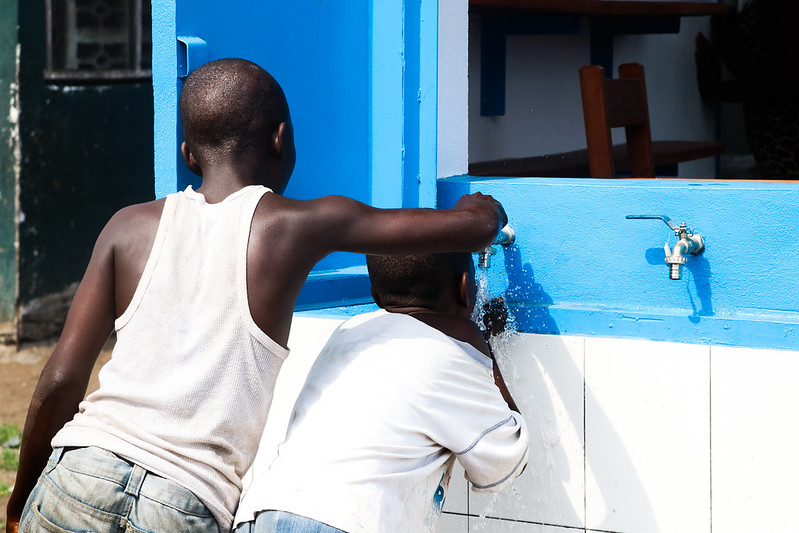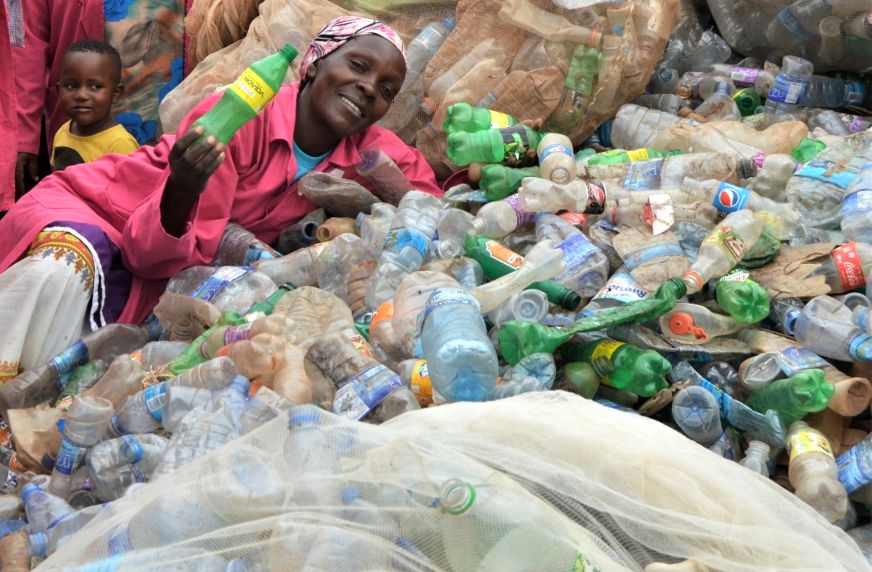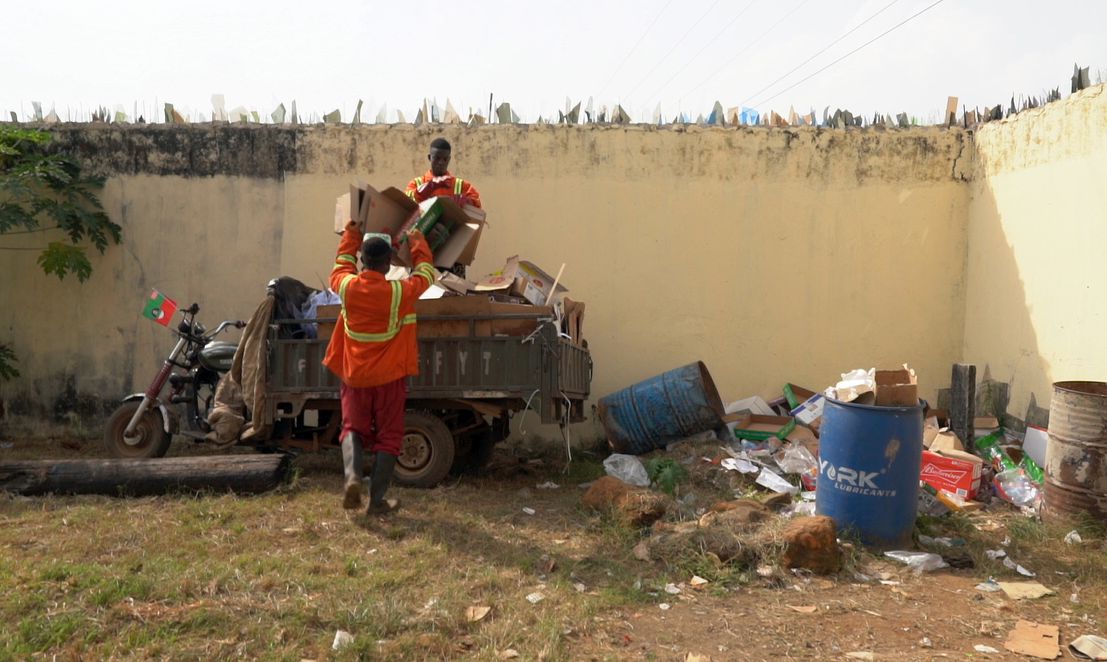The Cities Alliance Liberia Country Programme and the Institute for Housing and Urban Development Studies (IHS) developed and facilitated two tailor-made management training courses on Solid Waste and Water management in Greater Monrovia. The tailor-made trainings (TMTs) are part of a capacity-building programme for local government officials and community-based enterprises, combining online lectures, in-person discussions and fieldwork visits.
The first TMT focused on helping participants develop their management skills and solid waste management knowledge. The training took place in November and December 2020. Participants included representatives from the Monrovia City Corporation, the Ministry of Internal Affairs, the Environmental Protection Agency, and the University of Liberia.
I was able to develop my ability to bring CBEs and residents of Monrovia together to discuss their daily challenges and let community dwellers know that wetlands are not wastelands.
Agnes Peabody, Primary Waste Collection manager at the Monrovia City Corporation.

Another participant, Gabriel Nyarko, agriculture expert and founder of Green Planet Environmental Services, said he is using his insights from the course in the development of an affordable garbage bin. His organisation has been instrumental in implementing awareness about solid waste management across the communities where the CBE works.
For Boima Kiazolu, Assistant Professor at the University of Liberia, the training was particularly interesting, as participants explored the fundamentals of minimizing the impacts of solid waste on public health and the environment:
It was rewarding and stimulating to learn the principles of integrated sustainable waste management which aim to protect the health and well-being of the population.
The training was organised within the framework of the solid waste management activities deployed by Cities Alliance in Greater Monrovia, with support from the European Union.
Access to clean and safe drinking water is a challenge
The second TMT was held in March 2021, on the topic of Drinking water provision and management for communities and utility companies in Liberia. The course encouraged participants to explore decentralisation and governance in the Liberian context and how they relate to water infrastructure issues. As part of the training programme, the participants joined a field trip to the Liberia Water and Sewer Corporation facility.

‘The field trip helped me to know some of the mistakes in the water system. We lack strategic planning, so I will incorporate this into my daily work ’, said Sonnie Kouyateh, agronomy student.
George Y. Gleh II, Data Coordinator at the Federation of Liberia Urban Poor Savers (FOLUPS), explained that the trip set the basis for their group to identify the core problem around water management and define its objectives and strategies, a useful takeaway for building management and waste knowledge capacities.
Participants were asked to reflect on which current urban issue in Liberia they would wish to solve. Yvonne L. Boyd, Manager of the Drinking Water Sector of the Liberia Water Producers Association, discussed the challenges that urban migration into Greater Monrovia is having upon water management and provision.
Access to clean and safe drinking water is a challenge. Efforts made to solve this need is something I want to see resolved.
Yvonne L. Boyd, Manager Drinking Water Sector, Liberia Water Producers Association
Referencing a citywide profiling study from the Federation of Liberia Urban Poor Savers (FOLUPS), George Gleh added that despite the key issues of water and drainage, sanitation, and waste management, ‘safe drinking water provision is the most pressing issue that needs to be addressed in Liberia’.
The water management course was financed by Comic Relief.
The courses have helped participants gain knowledge in solid waste and water management, which can be applied to practical solutions in their daily work. The collaboration with local officials has helped fully contextualise the issues facing Liberia and the challenges specific to Greater Monrovia. By providing support and training which build long-lasting solutions, the LCP is helping Liberia on its way to achieving middle-income status by 2030.
The Liberia Country Programme is a multi-sectoral partnership initiative undertaken by Cities Alliance with support from the Government of Liberia and its partners. It aims at enabling Liberia to realize its urban agenda through investing in partnerships and improving alignment between national policy, local government capacity, and an active citizenry. Its key areas of work include waste management, urban governance, water infrastructure, climate resilience and gender equality.
The International Institute for Urban Management of the Erasmus University Rotterdam (IHS) was the first knowledge institution to join Cities Alliance in 2015. IHS seeks to engage in and contribute to the global debate on cities and improve the type and impact of services it provides by working in partnership with other Cities Alliance members. It also brings its expertise on capacity building.



